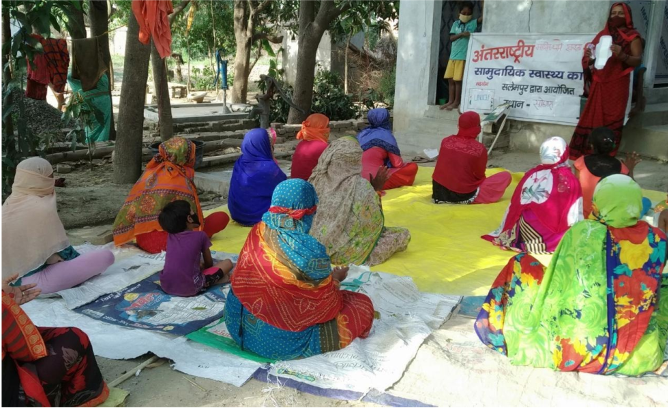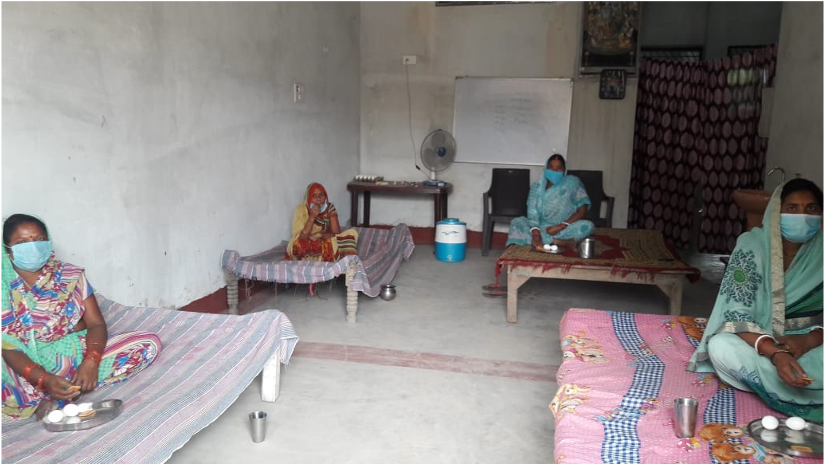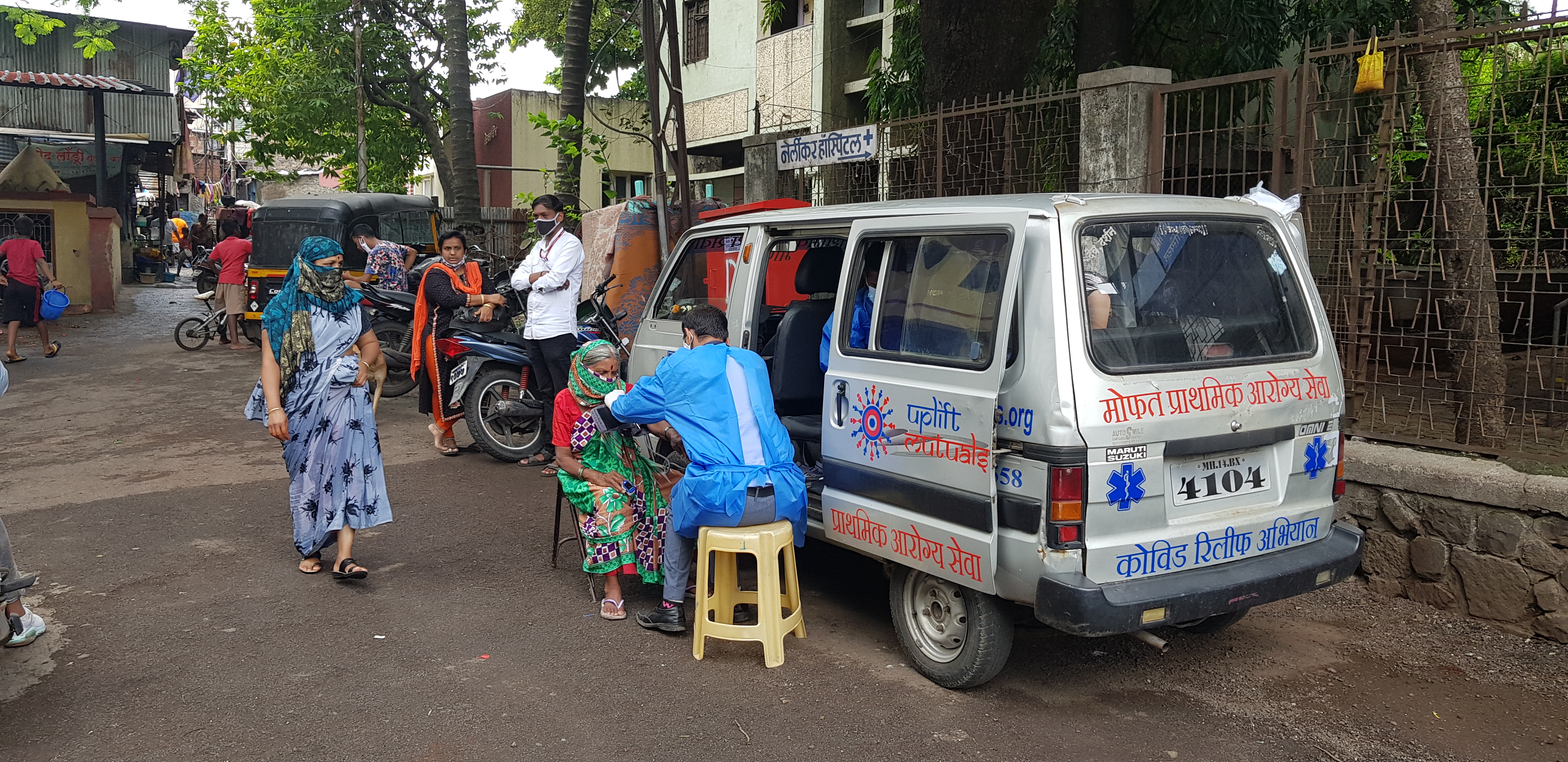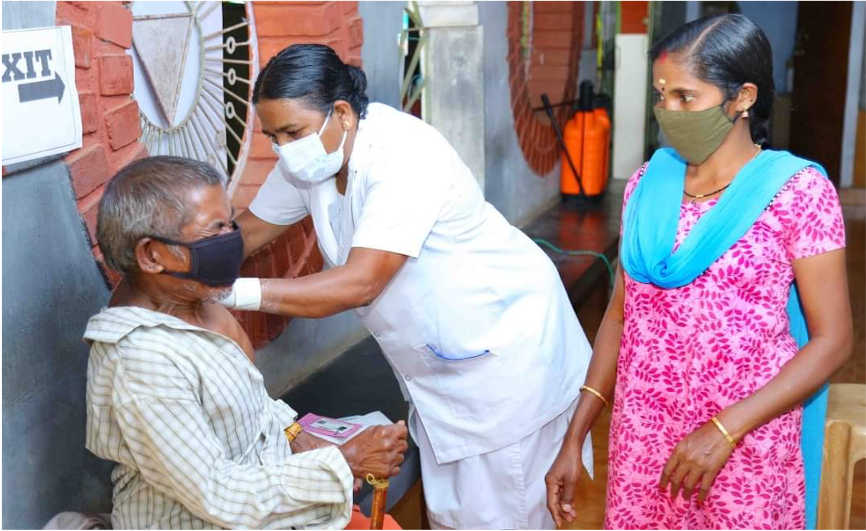Opportunity pushes forward with early recovery efforts to protect millions of vulnerable Indians from COVID-19
India COVID-19 relief efforts: Impact update
As India records more than 400,000 COVID-19 deaths, Opportunity International Australia has scaled up early recovery efforts in vulnerable hotspots.
Opportunity has been supporting the poorest in India for the past 13 years, helping more than five million families work their way out of poverty through small businesses supported by small loans.
We’re providing help and education about COVID-19 safety and preparedness to the most vulnerable. Tackling rampant, dangerous COVID-19 misinformation in hundreds of marginalised Indian communities is one of our key priorities.
When knowledge is power
COVID-19 infections are gradually decreasing in India, but there are fears of a potential third wave within months, and residents are increasingly unsure of who to trust for accurate health advice.
“We’re challenging a sea of misinformation about COVID-19 in India, from fake miracle cures to conspiracy theories about the origins of the virus. Working with largely rural populations in India with limited literacy, we’re building their knowledge and behaviours around COVID-safe practices,” says Annie Wang, Asia Health Director at Opportunity International Australia.
“Where in-person meetings are still permissible as ‘essential activities’ we've developed participatory modules of health education to tackle questions like ‘why is there a second wave after the government has announced COVID-19 has been conquered?’ and ‘will a local herbal remedy help prevent or cure COVID-19?’” says Annie.
“Our trained Health Leaders have been delivering critical COVID-19 education by SMS, WhatsApp, comics, posters and voice messages to rural villages across India, reaching millions who can’t afford or can’t access basic healthcare.
“More than 140,000 people are reached per day by Health Leaders sharing vital COVID-19 education about how to protect themselves and their families.
“Posters have been put up and audio messages played in shops across 500 rural villages, as well as SMS messages and two-minute videos which are circulated widely via WhatsApp.”

Community Health Leaders provide critical health education on COVID-19. Photo credit: Healing Fields Foundation
Enabling safe isolation
COVID-19 has fuelled food insecurity, with many Indians in poverty unable to access subsidised food.
Opportunity has so far delivered thousands of food rations, sanitary kits, and medicine to vulnerable Indians with mild symptoms or exposure to COVID-19.
“We don’t fund widespread distribution of food to minimise hoarding and price surges and are extremely mindful of the impact on local businesses. All supplies are sourced locally as much as possible. A roti bread bank or wet food is distributed in containment zones or at village isolation centers, where nutritious food is provided like milk, eggs and dahl,” says Annie.
“Over 500 people are currently isolating in our 70 village-level quarantine centres and they’ve received sanitary kits, medicine and nutritional supplements. An extra 1,000 ration kits have been distributed to families in urban slums and rural communities.”

Community COVID-19 care centres were established in villages and rural areas to help those with COVID-19 to safely isolate. Photo credit: Healing Fields Foundation
Managing COVID-19 and mental health at home via telemedicine
Research suggests that roughly 80 per cent of COVID-19 cases are mild to moderate severity. Opportunity has scaled up remote care via telemedicine, including a helpline and mobile app so people can manage symptoms and recover at home as much as possible, relieving strain on the public health system.
“Alongside our partner Cashpor, we provide free telemedicine through 336 telemedicine clinics co-located with branch offices, as well as through a 24/7 multilingual toll-free helpline and app which combined reaches over 1,000 people each day,” Annie adds.
"While premium telemedicine fee-for-service platforms have been widely available, our goal is to design services for the rural and urban poor and make sure that we optimise accessibility and remove any barriers.
“We’re innovative in how we’re giving choice, agency and preferences for people to access primary health consultations. Not everyone has access to a smartphone or the digital literacy to navigate a mobile app, but others prefer it.
“More than 500,000 have subscribed to our telemedicine services via the app mostly run by female doctors to ensure it is gender appropriate.”
.jpg)
Free telemedicine services have helped relieve pressure on India's health system. Photo credit: CASHPOR
Shoring up oxygen supplies for marginalised areas
Local hospitals have been collapsing under the pressure of the COVID-19 outbreak. Opportunity has been working with partners to establish existing branch offices or unused facilities to set up basic care beds and oxygen, as well as a temporary ambulance service.
“We work with rural hospitals to provide care and support to over one million rural households. If their COVID-19 symptoms can’t be managed at home, we help clients who have no access to transport during lockdown to a hospital bed or to a regional branch office for oxygen concentrator support until we can secure a hospital bed,” says Annie.
Two medical vans are also serving the containment zones in the urban slums of Pune, which has been the hardest hit state of Maharashtra.
“The vans provide primary health services which are otherwise nonexistent, because resources are focused in hospitals and COVID-19 testing or care,” Annie notes.

Medical vans in Pune have helped communities access primary health services safely during the pandemic. Photo credit: Uplift
Vaccinating the most vulnerable
India is the world’s largest vaccine maker but only five per cent of its population are vaccinated. India’s Government has pledged to vaccinate the whole of the adult population by the end of 2021.
Opportunity facilitates vaccination camps to support mobilisation in hard to reach and rural communities, focusing on health equity. To fast-track mass vaccinations to improve immunity, we’ve been collaborating with local governments to organise and facilitate vaccination camps given our trusted presence in our communities.
“We’ve administered more than 200,000 doses of vaccines in more than a thousand vaccination camps and serving high need communities and populations, including tribal and other remote communities, as well as seniors, people with disabilities and transgender groups,” Annie said.
“We’ve reached up to 200,000 people and the average Equitas vaccination camp costs as little as A$7 to run.

Tribal Indian communities received fast-tracked vaccines as part of efforts to vaccinate high need communities. Photo credit: Healing Fields Foundation
“We’re committed to our early recovery work, which includes supporting our microfinance clients to restart and rebuild their lives through loan top-ups or developing their digital business skills and accessing financial protection products like COVID-19 insurance.
“Mainstreaming telemedicine services and scaling up mental health support and grief counselling in the wake of this crisis are our other major priorities. This includes training of women to become tele-counsellors to develop a mental health counselling referral service.”
With cases rampant and a struggling health system, we’re doing everything we can, with thanks to our supporters, to strengthen local services and systems to help the people of India survive the pandemic.